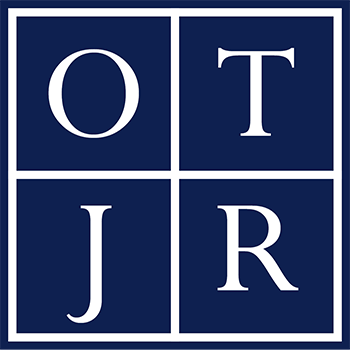Justice and Reconciliation in Cambodia
On 17 April 1975, the Khmer Rouge captured the Cambodian capital, Phnom Penh. The Khmer Rouge came to power with the aim of establishing a socialist, fully independent and socially and ethnically homogeneous Cambodia. In order to achieve this, the regime launched a revolution in which all previous economic, social and cultural institutions were abolished, the entire population was transformed into a collective workforce, and all Cambodians perceived as a threat to the new order were ruthlessly suppressed. Estimates of the dead range from 1.7 million to 3 million, out of a 1975 population estimated at 7.3 million.
In October 2004, the Cambodian National Assembly ratified an agreement with the United Nations on the establishment of a tribunal to try senior leaders of, and those most responsible for the atrocities committed during, the Khmer Rouge regime. The Extraordinary Chambers in the Courts of Cambodia (ECCC) were established under a law passed by the Cambodian National Assembly in 2001. In July 2007, the Co-Prosecutors of the ECCC requested that five suspects be charged with crimes against humanity, genocide, grave breaches of the Geneva Conventions, homicide, torture and religious persecution. The Office of the Co-Investigating Judges has currently indicted these five persons and the trials are underway.
The OTJR Working Paper Series explores the legal and political dimensions of the trials, their implications for transitional justice processes in Cambodia, and the lessons they may signal for other post-conflict societies.
Series Papers
1. Dilemmas of Delayed Justice for the Crimes of the Khmer Rouge
Tue, 04 Nov 2008 by Shane Darcy
Holding individual members of the Khmer Rouge criminally responsible for acts committed some thirty years ago presents significant challenges.
2. Who Should Stand Trial in Cambodia?
Wed, 10 Dec 2008 by John D. Ciorciari
The question of who to put on trial in Cambodia remains deeply contentious, and the trials currently underway will test the scope for future prosecutions.
3. A Predictable Disagreement with an Uncertain Outcome
Sun, 20 Jan 2013 by Elena Rose
The Cambodian and International Co-Prosecutors lock horns over whether to investigate six more suspects at the Khmer Rouge trials.
4. Reparations for Victims of the Khmer Rouge
Wed, 20 May 2009 by Christoph Sperfeldt
Although any reparations scheme in Cambodia faces considerable challenges, the establishment of the ECCC provides a window of opportunity for initiating a more victim-oriented process of justice in the country.
5. Challenges in the Quest for Justice in Cambodia
Tue, 08 Jun 2010 by Rudina Jasini
This paper examines the key social- cultural and legal- political challenges facing the quest for justice in Cambodia, advancing the view that such an analysis can allow for an enhanced understanding of the complexity of the transitional justice mechanism in Cambodia.
6. Strengthening the Participation of the Victims at the ECCC? A look at the revised legal framework for Civil Party participation
Wed, 09 Jun 2010 by Brianne McGonigle Leyh
This paper examines the ever changing legal framework for victim participation at the Extraordinary Chambers in the Courts of Cambodia.
7. The right of the Civil Parties to participate v. the right of the Accused to a fair and expeditious trial: challenges at the ECCC?
Sun, 06 Jun 2010 by Karim A.A. Khan & Daniella Rudy
This paper analyses the parameters of the Civil Parties participation in the ECCC criminal proceedings and the challenges raised regarding the right of victims to participate and the right of the defendant to a fair and expeditious trial.
8. "Moving Forward Through Justice" Human Rights and Memory Politics in Justice and Reconciliation
Mon, 08 Aug 2011 by Peter Manning
This paper uses the lens of memory to sketch some alternative ways to think about the ‘domestic’ and ‘international’ characteristics of the ECCC process.
9. Managing Civil Party and Public Expectations in the Extraordinary Chambers in the Courts of Cambodia
Thu, 21 Jul 2011 by Philippa M. McMahon
This paper proposes a shift away from the dominant legal interpretation of justice in order to acknowledge the importance of addressing the expectations of victims, focussing specifically on the Extraordinary Chambers in the Courts of Cambodia (ECCC).

